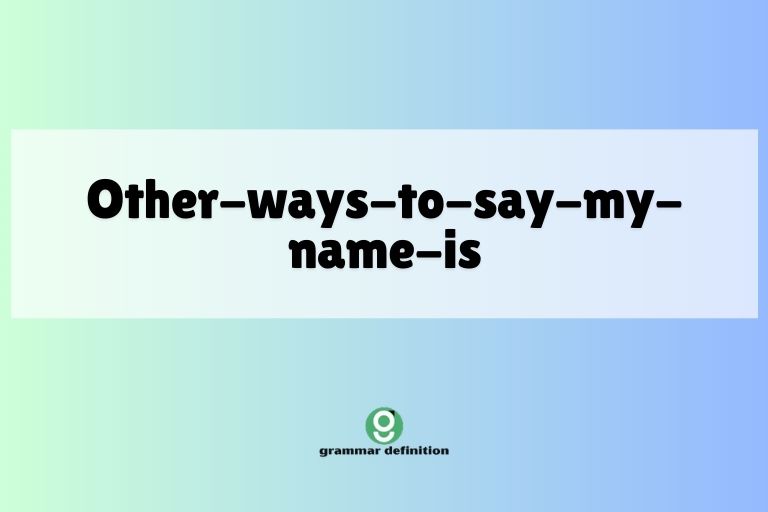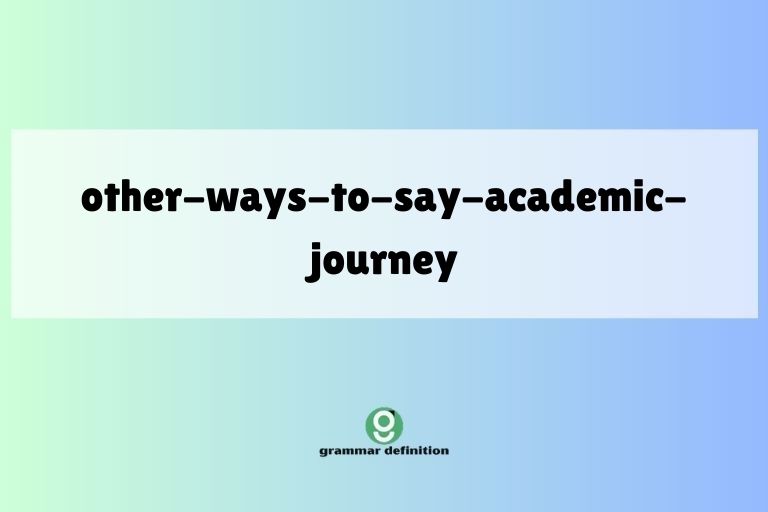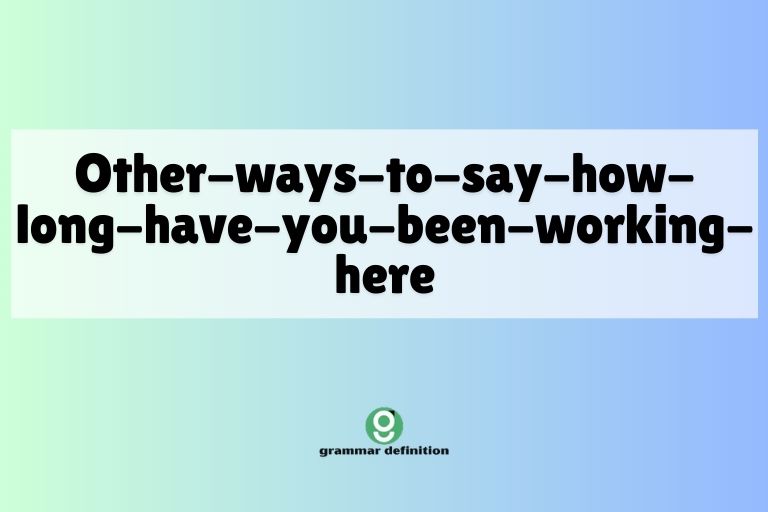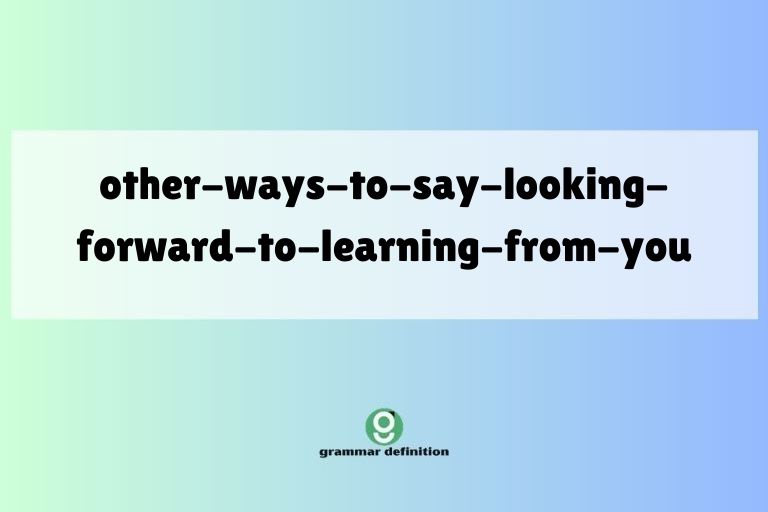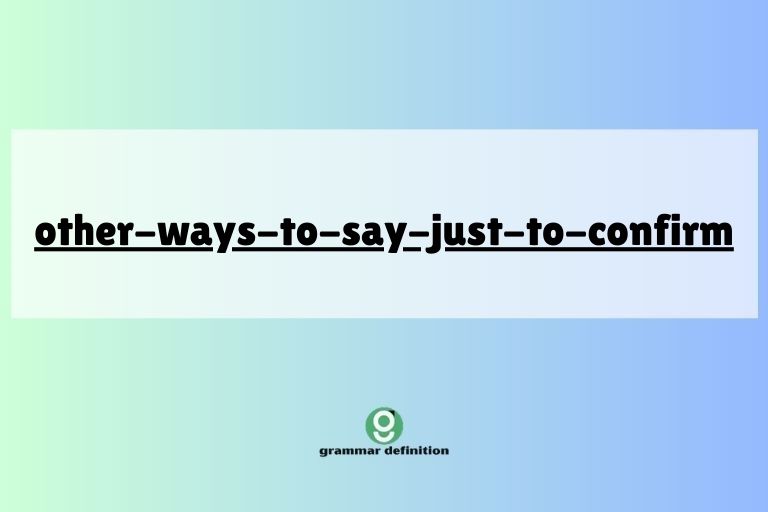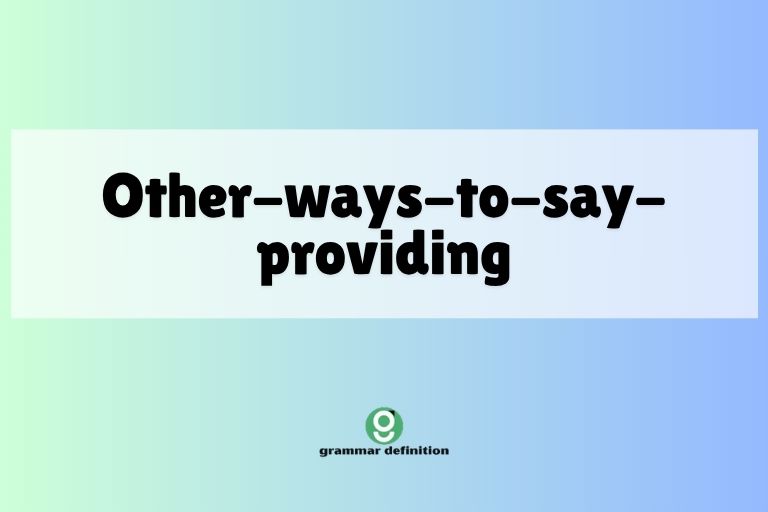Beyond “Thank You”: Expressing Gratitude for Time Given
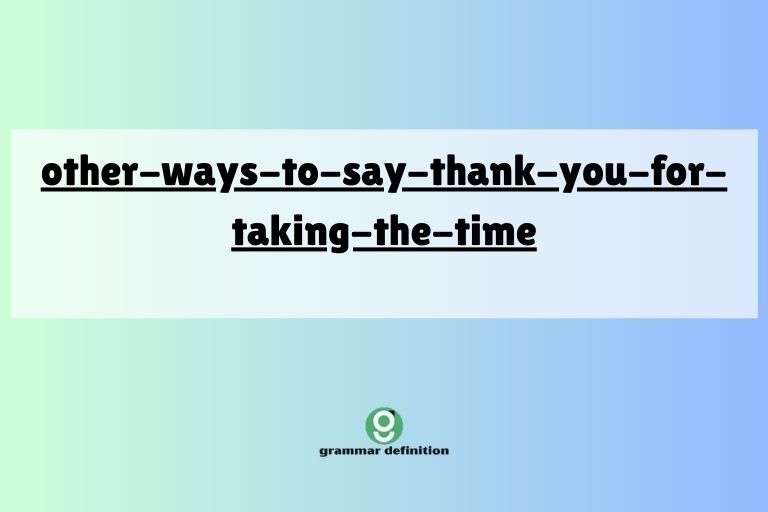
Expressing gratitude effectively is a vital skill in both personal and professional contexts. While a simple “thank you” is always appreciated, it can sometimes feel insufficient, especially when someone has dedicated a significant amount of time to assist you.
Learning alternative ways to express your appreciation for someone’s time not only enhances your communication skills but also strengthens relationships and leaves a lasting positive impression. This article explores a variety of phrases and expressions designed to convey sincere gratitude for the time and effort others have invested in helping you.
It’s designed for English language learners, professionals, and anyone looking to refine their communication skills and express gratitude more eloquently.
This guide will cover different ways to say thank you for taking the time, including formal and informal options, examples of how to use them in various situations, common mistakes to avoid, and practice exercises to reinforce your understanding. By mastering these expressions, you’ll be better equipped to show genuine appreciation and build stronger connections with those around you.
Table of Contents
- Introduction
- Definition: Expressing Gratitude for Time
- Structural Breakdown of Gratitude Phrases
- Types and Categories of Gratitude Expressions
- Examples of Gratitude Expressions
- Usage Rules: When and How to Use Gratitude Phrases
- Common Mistakes to Avoid
- Practice Exercises
- Advanced Topics: Nuances of Gratitude
- FAQ: Frequently Asked Questions
- Conclusion
Definition: Expressing Gratitude for Time
Expressing gratitude for time involves acknowledging and appreciating the effort someone has made by dedicating their time to assist, support, or engage with you. It goes beyond a simple “thank you” to convey a deeper sense of appreciation for the value of their time and the impact of their contribution.
This concept is crucial in maintaining positive relationships and fostering a culture of respect and recognition.
Gratitude expressions can be classified based on their level of formality, specificity, and the context in which they are used. They serve to acknowledge the sacrifice made by the other person and to reinforce the value of their contribution.
Effective expressions of gratitude are sincere, specific, and tailored to the situation at hand.
The function of these phrases is multifaceted. Firstly, they serve to acknowledge the effort and time invested by the other person.
Secondly, they reinforce positive behavior and encourage future assistance. Thirdly, they strengthen the relationship between the individuals involved, fostering trust and mutual respect.
Finally, they contribute to a positive and appreciative environment.
Structural Breakdown of Gratitude Phrases
Gratitude phrases typically consist of several key components that, when combined, effectively convey appreciation for someone’s time. These components include:
- Acknowledgement: Recognizing the specific action or contribution for which you are grateful.
- Appreciation: Expressing your sincere appreciation for the time and effort invested.
- Impact: Highlighting the positive impact or benefit resulting from their assistance.
- Closing: A final expression of gratitude or a statement of continued appreciation.
These components can be combined in various ways to create effective gratitude phrases. For example, a formal expression might include a more elaborate acknowledgement and a formal closing, while an informal expression might be more concise and personal.
The specific structure will depend on the context and the relationship between the individuals involved.
Consider the following breakdown of a sample gratitude phrase: “I am incredibly grateful for the time you took to review my proposal. Your feedback was invaluable and significantly improved the final version.
Thank you again for your help.” In this example, “I am incredibly grateful” expresses appreciation, “the time you took to review my proposal” acknowledges the action, “Your feedback was invaluable and significantly improved the final version” highlights the impact, and “Thank you again for your help” serves as the closing.
Types and Categories of Gratitude Expressions
Expressions of gratitude can be categorized based on their formality, specificity, and the context in which they are used. Here’s a breakdown of the main types:
Formal Expressions
Formal expressions are suitable for professional settings, interactions with superiors, or situations where a high degree of respect is required. These phrases tend to be more elaborate and use more sophisticated vocabulary.
They are often used in written communication, such as emails or letters, but can also be used in formal spoken interactions.
Examples of formal expressions include: “I am deeply grateful for the time you dedicated to this matter,” “I sincerely appreciate your valuable time and consideration,” and “Please accept my sincere gratitude for your invaluable contribution.” These phrases convey a high level of respect and appreciation for the other person’s time and effort.
Informal Expressions
Informal expressions are appropriate for casual settings, interactions with friends and family, or situations where a relaxed and friendly tone is desired. These phrases are typically more concise and use simpler language.
They are often used in spoken communication, such as conversations or phone calls, but can also be used in informal written communication, such as text messages or casual emails.
Examples of informal expressions include: “Thanks so much for your time!,” “I really appreciate you taking the time,” and “I owe you one for taking the time to help me out.” These phrases convey a sense of warmth and personal connection.
Specific Expressions
Specific expressions highlight exactly what you are thankful for. Instead of a generic “thank you,” these phrases pinpoint the action or contribution you appreciate.
This shows that you have paid attention to the details and truly value what the person has done. Specific expressions can be either formal or informal, depending on the context and relationship.
Examples of specific expressions include: “Thank you for taking the time to explain the new software to me,” “I appreciate you spending the extra time to help me meet the deadline,” and “I am grateful for the time you invested in mentoring me.” These phrases demonstrate that you recognize the value of their specific contribution.
Examples of Gratitude Expressions
To further illustrate the different types of gratitude expressions, here are several examples organized by category:
Formal Examples
The table below provides 25 examples of formal expressions of gratitude for time, suitable for professional or respectful interactions.
| # | Formal Expression | Context |
|---|---|---|
| 1 | I am deeply grateful for the time you dedicated to this matter. | Expressing gratitude to a superior for their time. |
| 2 | I sincerely appreciate your valuable time and consideration. | Thanking a client or business partner. |
| 3 | Please accept my sincere gratitude for your invaluable contribution. | Acknowledging a significant contribution to a project. |
| 4 | I extend my heartfelt thanks for your time and expertise. | Thanking a consultant or expert for their assistance. |
| 5 | Your time and dedication are greatly appreciated. | Recognizing an employee’s hard work. |
| 6 | I am most appreciative of the time you have invested in this project. | Thanking a team member for their commitment. |
| 7 | We are indebted to you for your generous allocation of time. | Expressing gratitude to a benefactor or sponsor. |
| 8 | I wish to express my profound gratitude for your time and support. | Thanking a mentor or advisor. |
| 9 | Your time is greatly valued, and I thank you sincerely. | Formal acknowledgement of someone’s time. |
| 10 | I am extremely thankful for the time you spared to assist me. | Expressing gratitude for help received. |
| 11 | Please accept my deepest thanks for your time and attention to detail. | Acknowledging meticulous work. |
| 12 | I am truly grateful for the time you took out of your busy schedule. | Acknowledging their busy schedule. |
| 13 | Your time and effort have been invaluable to the success of this endeavor. | Highlighting the impact of their time. |
| 14 | I am profoundly grateful for the time you dedicated to reviewing my work. | Thanking someone for reviewing documents. |
| 15 | We are most appreciative of the time you have given to our organization. | Thanking someone for their contributions to the organization. |
| 16 | I would like to convey my sincere appreciation for your time and insights. | Expressing gratitude for their insights. |
| 17 | I am particularly grateful for the time you spent mentoring me. | Thanking a mentor. |
| 18 | Your willingness to dedicate your time is deeply appreciated. | Expressing gratitude for their willingness to help. |
| 19 | I am exceedingly grateful for the time you have invested in this project. | Acknowledging their investment in a project. |
| 20 | Please accept my utmost gratitude for your time and consideration. | Expressing the highest level of gratitude. |
| 21 | I wish to convey my sincere thanks for your time and expertise. | Formally thanking someone for their time and knowledge. |
| 22 | Your time commitment to this project is greatly appreciated. | Acknowledging their commitment. |
| 23 | I am truly indebted to you for the time you allocated to this task. | Expressing indebtedness for their time. |
| 24 | We extend our sincere appreciation for your time and support in this matter. | Thanking someone for their support. |
| 25 | I am deeply thankful for the time you took to address my concerns. | Thanking someone for addressing concerns. |
These formal expressions are suitable for emails, letters, or formal spoken interactions where you want to convey a high degree of respect and appreciation.
Informal Examples
The table below provides 25 examples of informal expressions of gratitude for time, suitable for friends, family, and casual acquaintances.
| # | Informal Expression | Context |
|---|---|---|
| 1 | Thanks so much for your time! | A quick and friendly thank you. |
| 2 | I really appreciate you taking the time. | Expressing appreciation in a casual way. |
| 3 | I owe you one for taking the time to help me out. | Promising to return the favor. |
| 4 | Thanks a bunch for your time! | An enthusiastic thank you. |
| 5 | I can’t thank you enough for your time. | Expressing deep appreciation. |
| 6 | You’re a lifesaver for taking the time! | Thanking someone who helped in a critical situation. |
| 7 | I’m so grateful for your time. | A simple and sincere thank you. |
| 8 | Cheers for taking the time! | An informal and friendly thank you (British English). |
| 9 | I really appreciate you making the time. | Acknowledging that they made time for you. |
| 10 | Thanks for your time, I really appreciate it! | A straightforward and friendly thank you. |
| 11 | You’re the best for taking the time! | Expressing high praise and gratitude. |
| 12 | I’m super grateful for your time. | An enthusiastic and informal thank you. |
| 13 | Thanks a million for your time! | Exaggerated but friendly thank you. |
| 14 | I really appreciate you giving me your time. | Expressing gratitude for their generosity. |
| 15 | Thanks for your time, it means a lot! | Emphasizing the significance of their help. |
| 16 | I’m so thankful for your time. | A heartfelt and informal thank you. |
| 17 | You’re a star for taking the time! | Praising their helpfulness. |
| 18 | I owe you big time for taking the time! | Expressing a strong sense of obligation to repay the favor. |
| 19 | Thanks for your time, I owe you one! | Promising to return the favor in the future. |
| 20 | I’m really grateful for your time and effort. | Acknowledging both time and effort. |
| 21 | Thanks a ton for your time! | An enthusiastic thank you. |
| 22 | I’m so glad you took the time to help me. | Expressing happiness and gratitude. |
| 23 | You’re a gem for taking the time! | Praising their kindness and helpfulness. |
| 24 | I’m super thankful for your time and assistance. | Thanking someone for their assistance. |
| 25 | Thanks for your time, you’re a legend! | Praising their legendary helpfulness. |
Use these informal expressions in casual conversations, text messages, or emails to convey your appreciation in a friendly and approachable manner.
Specific Examples
The table below provides 25 examples of specific expressions of gratitude for time, highlighting the particular action or contribution you appreciate.
| # | Specific Expression | Context |
|---|---|---|
| 1 | Thank you for taking the time to explain the new software to me. | Expressing gratitude for a detailed explanation. |
| 2 | I appreciate you spending the extra time to help me meet the deadline. | Thanking someone for helping with a deadline. |
| 3 | I am grateful for the time you invested in mentoring me. | Acknowledging the time spent on mentorship. |
| 4 | Thank you for taking the time to review my proposal; your feedback was invaluable. | Expressing gratitude for providing feedback. |
| 5 | I appreciate you taking the time to listen to my concerns and offer advice. | Thanking someone for listening and giving advice. |
| 6 | Thank you for dedicating your time to volunteering at the event. | Expressing gratitude for volunteer work. |
| 7 | I appreciate you taking the time to attend the meeting despite your busy schedule. | Acknowledging their attendance at a meeting. |
| 8 | Thank you for spending the time to train me on this new system. | Expressing gratitude for training. |
| 9 | I am grateful for the time you took to help me troubleshoot the technical issue. | Thanking someone for technical support. |
| 10 | Thank you for taking the time to proofread my document and provide corrections. | Expressing gratitude for proofreading. |
| 11 | I appreciate you taking the time to show me around the office on my first day. | Thanking someone for giving a tour. |
| 12 | Thank you for spending the time to research and compile this report. | Expressing gratitude for research and compilation. |
| 13 | I am grateful for the time you took to connect me with your professional network. | Thanking someone for networking assistance. |
| 14 | Thank you for taking the time to explain the complex concepts in a simple way. | Expressing gratitude for clear explanations. |
| 15 | I appreciate you taking the time to provide a reference for my job application. | Thanking someone for providing a reference. |
| 16 | Thank you for spending the time to organize and declutter my workspace. | Expressing gratitude for organization assistance. |
| 17 | I am grateful for the time you took to help me prepare for the presentation. | Thanking someone for presentation preparation. |
| 18 | Thank you for taking the time to translate the document into another language. | Expressing gratitude for translation services. |
| 19 | I appreciate you taking the time to drive me to the airport. | Thanking someone for providing transportation. |
| 20 | Thank you for spending the time to teach me a new skill. | Expressing gratitude for teaching. |
| 21 | I am grateful for the time you took to edit my manuscript. | Thanking someone for editing. |
| 22 | Thank you for taking the time to assist me with the project, despite your own workload. | Acknowledging their workload while thanking them. |
| 23 | I appreciate you spending the time to gather and analyze the data for this project. | Expressing gratitude for data analysis. |
| 24 | Thank you for taking the time to provide constructive criticism on my performance. | Thanking someone for constructive feedback. |
| 25 | I am grateful for the time you invested in developing and implementing the new strategy. | Thanking someone for strategy development. |
These specific expressions demonstrate that you recognize the value of their particular contribution and appreciate the time they dedicated to it.
Usage Rules: When and How to Use Gratitude Phrases
The correct usage of gratitude phrases depends on several factors, including the context, the relationship between the individuals involved, and the level of formality required. Here are some general guidelines:
- Consider the context: Choose a phrase that is appropriate for the situation. Formal settings require more formal expressions, while casual settings allow for more informal expressions.
- Know your audience: Tailor your expression to the individual you are addressing. Consider their position, personality, and your relationship with them.
- Be sincere: Ensure that your expression of gratitude is genuine and heartfelt. People can often detect insincerity.
- Be specific: Whenever possible, specify what you are thankful for. This shows that you have paid attention and truly value their contribution.
- Follow up: Consider following up with a written note or a small gesture of appreciation to reinforce your gratitude.
In formal settings, it is important to use proper grammar and avoid slang or colloquialisms. In informal settings, you can be more relaxed and use familiar language.
However, even in informal settings, it is important to be respectful and avoid offensive or inappropriate language.
There are few exceptions to these rules. In some cases, a simple “thank you” may be sufficient, especially if you are in a hurry or if the other person has only provided a small amount of assistance.
However, in most cases, taking the time to express your gratitude more fully will be appreciated.
Common Mistakes to Avoid
Several common mistakes can undermine the effectiveness of your gratitude expressions. Here are some to avoid:
- Insincerity: Using a gratitude phrase without genuine appreciation can come across as disingenuous.
- Vagueness: Failing to specify what you are thankful for can make your expression seem generic and impersonal.
- Inappropriateness: Using a formal expression in a casual setting or vice versa can be awkward and ineffective.
- Grammatical errors: Making grammatical errors can detract from the sincerity and professionalism of your expression.
- Overuse: Using the same gratitude phrase repeatedly can diminish its impact.
Here are some examples of common mistakes and corrections:
| Incorrect | Correct | Explanation |
|---|---|---|
| “Thanks for the time.” | “Thank you for your time.” | Adding “you” makes it more polite. |
| “I appreciate it.” | “I appreciate you taking the time.” | Specifying what you appreciate makes it more meaningful. |
| “Thanks, whatever.” | “Thanks so much for your help!” | Avoiding dismissive language shows respect. |
| “I’m thankful for the time.” | “I’m thankful for the time you dedicated to this.” | Adding context and personalizing the expression. |
| “Appreciate it.” | “I appreciate your time and effort.” | Using a complete sentence and being specific. |
By avoiding these common mistakes, you can ensure that your expressions of gratitude are sincere, effective, and well-received.
Practice Exercises
Test your understanding of gratitude expressions with these practice exercises:
-
Question: You are writing an email to your manager to thank them for reviewing your report. Choose the most appropriate expression of gratitude:
- Thanks for the time!
- I am deeply grateful for the time you dedicated to reviewing my report.
- I owe you one for taking the time!
Answer: b. I am deeply grateful for the time you dedicated to reviewing my report.
-
Question: You want to thank a friend for helping you move. Choose the most appropriate expression of gratitude:
- I extend my heartfelt thanks for your time and expertise.
- Thanks so much for your time!
- We are indebted to you for your generous allocation of time.
Answer: b. Thanks so much for your time!
-
Question: You want to thank a colleague for helping you troubleshoot a technical issue. Choose the most appropriate expression of gratitude:
- Thank you for taking the time to help me troubleshoot the technical issue.
- I sincerely appreciate your valuable time and consideration.
- Cheers for taking the time!
Answer: a. Thank you for taking the time to help me troubleshoot the technical issue.
-
Question: You are writing a thank you note to a guest speaker who presented at your company. Which expression is most suitable?
- “Thanks for showing up!”
- “I am sincerely grateful for the time you took to share your insights.”
- “Cool, thanks for the talk!”
Answer: b. “I am sincerely grateful for the time you took to share your insights.”
-
Question: A coworker spent extra hours helping you finish a project. How would you express your gratitude informally?
- “I appreciate your dedication to this project.”
- “Thanks for your time; it was satisfactory.”
- “I owe you big time for helping me out!”
Answer: c. “I owe you big time for helping me out!”
-
Question: What is the best way to thank a professor for reviewing your research paper outside of their office hours?
- “I appreciate you looking at my paper.”
- “I am deeply thankful for the time you dedicated to reviewing my research paper.”
- “Thanks, see ya!”
Answer: b. “I am deeply thankful for the time you dedicated to reviewing my research paper.”
-
Question: You want to thank a client for their patience during a long meeting. Which expression is most appropriate?
- “Thanks for waiting.”
- “I appreciate your patience and time during our meeting.”
- “Hope you didn’t have anything better to do.”
Answer: b. “I appreciate your patience and time during our meeting.”
-
Question: A friend helped you move apartments. What’s an informal way to show your gratitude?
- “I acknowledge your contribution to my relocation.”
- “Thanks a bunch for your help with the move!”
- “Your efforts were noted.”
Answer: b. “Thanks a bunch for your help with the move!”
-
Question: Choose the most appropriate expression to thank a mentor who has guided you through a challenging project:
- “Thanks for the advice.”
- “I am profoundly grateful for the time you invested in guiding me through this project.”
- “You were alright, thanks.”
Answer: b. “I am profoundly grateful for the time you invested in guiding me through this project.”
-
Question: You are thanking a consultant for their detailed analysis. Which is the most professional?
- “Thanks for the analysis, dude!”
- “I extend my sincere appreciation for the time and detail you put into the analysis.”
- “Good job, I guess.”
Answer: b. “I extend my sincere appreciation for the time and detail you put into the analysis.”
Exercise 2: Fill in the Blanks
Complete the following sentences with an appropriate expression of gratitude for time.
- I am ______ for the time you took to review my manuscript. (Answer: grateful)
- ______ for your time, I really appreciate it. (Answer: Thanks)
- I ______ you one for taking the time to help me out. (Answer: owe)
- I ______ appreciate you making the time. (Answer: really)
- We are ______ to you for your generous allocation of time. (Answer: indebted)
- Thank you for _______ your time to volunteer at the event. (Answer: dedicating)
- I _______ you for spending the extra time to help me meet the deadline. (Answer: appreciate)
- I am ______ grateful for the time you invested in mentoring me. (Answer: extremely)
- Thank you for ______ me with your professional connections. (Answer: connecting)
- I appreciate you ______ me around the office on my first day. (Answer: showing)
Exercise 3: Rewriting Sentences
Rewrite the following sentences to express gratitude for time in a more specific and meaningful way.
- Original: Thanks for the help. (Rewritten: Thank you for taking the time to assist me with the presentation.)
- Original: I appreciate it. (Rewritten: I appreciate you taking the time to explain the new procedure.)
- Original: Good job. (Rewritten: I am grateful for the time you invested in completing this project successfully.)
- Original: Thanks for the time. (Rewritten: Thank you for taking the time to meet with me today despite your busy schedule.)
- Original: You helped a lot. (Rewritten: I appreciate you spending the extra time to help me meet the deadline.)
- Original: It was nice. (Rewritten: I am grateful for the time you took to provide constructive feedback.)
- Original: Thanks for your help. (Rewritten: Thanks so much for your time and help. I really appreciate it!)
- Original: We appreciate it. (Rewritten: We sincerely appreciate your valuable time and consideration.)
- Original: Appreciate it. (Rewritten: I truly appreciate your time and effort on this project.)
- Original: I’m grateful. (Rewritten: I’m so grateful for the time you spent looking over my resume.)
Advanced Topics: Nuances of Gratitude
For advanced learners, understanding the nuances of gratitude can further enhance your communication skills. This includes recognizing cultural differences in expressing gratitude, using non-verbal cues to reinforce your appreciation, and tailoring your expressions to specific situations.
In some cultures, direct expressions of gratitude may be less common, and appreciation may be conveyed through indirect means, such as reciprocal gestures or subtle acknowledgements. Understanding these cultural nuances can help you avoid misunderstandings and communicate more effectively across cultures.
Non-verbal cues, such as eye contact, body language, and tone of voice, can also play a significant role in conveying gratitude. Maintaining eye contact, using a warm and sincere tone, and adopting an open and receptive posture can reinforce your verbal expressions of appreciation.
Finally, tailoring your expressions of gratitude to specific situations can make them more meaningful and impactful. This includes considering the other person’s personality, their relationship to you, and the specific circumstances of the interaction.
By paying attention to these details, you can craft expressions of gratitude that are both sincere and effective.
FAQ: Frequently Asked Questions
-
Question: Is it always necessary to say more than “thank you”?
Answer: While a simple “thank you” is always appreciated, elaborating on your gratitude can be more impactful, especially when someone has invested significant time or effort. It shows you genuinely value their contribution and strengthens your relationship.
-
Question: How formal should my expression of gratitude be?
Answer: The level of formality should match the context and your relationship with the person. Use formal expressions in professional settings or when addressing superiors, and informal expressions with friends, family, or close colleagues.
-
Question: What if I don’t feel genuinely grateful?
Answer: It’s important to be sincere. If you don’t feel genuinely grateful, try to find something specific you can appreciate, even if it’s just their willingness to help. Focus on acknowledging their effort, even if the outcome wasn’t ideal.
-
Question: Can I express gratitude through actions instead of words?
Answer: Absolutely! Actions can often speak louder than words. Offering a reciprocal favor, sending a thoughtful gift, or simply being reliable and supportive in the future are all excellent ways to show your appreciation.
-
Question: How can I make my gratitude more specific?
Answer: Instead of saying “Thank you for your time,” try “Thank you for taking the time to explain the new software to me” or “I appreciate you spending the extra time to help me meet the deadline.” The more specific you are, the more sincere and meaningful your gratitude will seem.
-
Question: Is it ever too late to express gratitude?
Answer: It’s generally better to express gratitude
than not at all. Even if some time has passed, a sincere expression of appreciation can still be meaningful. However, the sooner you express your gratitude, the more impact it will likely have.
-
Question: Should I always write a thank-you note, or is a verbal expression sufficient?
Answer: A verbal expression is often sufficient, especially in informal settings. However, a written thank-you note can be a thoughtful gesture, particularly in formal situations or when someone has gone above and beyond to assist you. It provides a lasting reminder of your appreciation.
-
Question: How can I express gratitude effectively if I am not a native English speaker?
Answer: Focus on sincerity and clarity. Even if your vocabulary is limited, a genuine expression of appreciation will be well-received. Use simple, clear language and don’t be afraid to ask for help from a native speaker if you are unsure of the correct phrasing.
-
Question: What if the person’s help didn’t achieve the desired outcome? Should I still express gratitude?
Answer: Yes, you should still express gratitude for their effort and willingness to help. Acknowledge their intention and the time they invested, even if the outcome wasn’t ideal. You can say something like, “I appreciate you taking the time to help, even though it didn’t work out as we hoped.”
-
Question: Can I use humor when expressing gratitude?
Answer: Humor can be appropriate in certain situations, particularly in informal settings with people you know well. However, be cautious and ensure that your humor is not sarcastic or dismissive. The goal is to lighten the mood and express your appreciation in a friendly way, not to undermine the sincerity of your gratitude.
Conclusion
Mastering various ways to express gratitude for time is an invaluable skill that enhances communication, strengthens relationships, and fosters a positive environment. By understanding the nuances of formal and informal expressions, avoiding common mistakes, and practicing effective communication techniques, you can convey your sincere appreciation for the time and effort others have invested in helping you.
Remember, the key to expressing gratitude effectively is sincerity, specificity, and appropriateness. Tailor your expressions to the context, the individual, and the situation at hand, and always strive to communicate your appreciation in a genuine and heartfelt manner.
By doing so, you will not only strengthen your relationships but also contribute to a culture of appreciation and respect.

